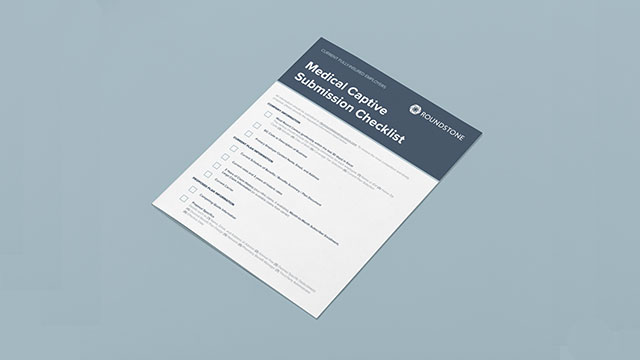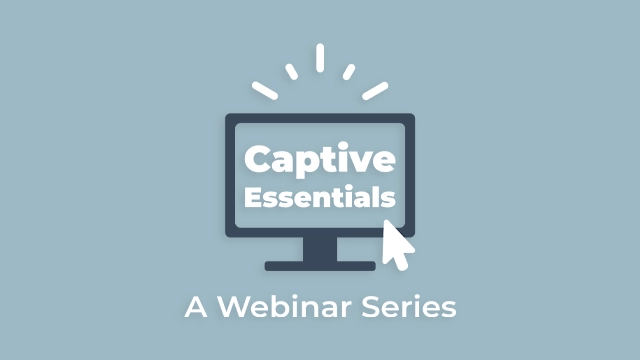Earlier this year, the leadership team at Roundstone met to explore the concept of DEI (Diversity, Equity, and Inclusion). The discussion was led by Dr. James Knight, a DEI Strategist who works with business, education, government, and non-profit leaders to help build inclusive environments where people can thrive. We began this DEI initiative because we do not take our culture at Roundstone for granted and want to ensure it is one of belonging, respect, and curiosity. As we were talking, another idea sparked that connects directly to our mission of affordable, quality healthcare for all – the idea of culturally competent healthcare.
What is Culturally Competent Healthcare?
DEI comes to life in all sorts of ways in an organization through policies and programs that promote the representation and participation of different groups of individuals. An employer’s employee benefits program is one key area where you can activate DEI, creating healthcare to provide effective care to people with diverse backgrounds, beliefs, values, attitudes, and behaviors. It’s a practical strategy that delivers better health outcomes to employees, and cost savings to the employer.
Employers choose to self-insure health benefits because they want control and flexibility not afforded by the traditional fully-insured, fixed-premium model. The Roundstone Captive facilitates self-funding for small and mid-market employers by allowing them to share risk among other like-sized companies, improving predictability and reducing volatility compared to self-funding solely with stop-loss reinsurance. This freedom allows employers to build a highly personalized benefits plan that serves their unique workforce population. It gives them the framework to curate benefits offerings and adapt cost containment solutions to meet social, cultural, and linguistic needs of their workforce.
Why Does Culturally Competent Healthcare Matter?
Culturally competent healthcare is not just an HR buzzword. Nor is it promoting discrimination. Numerous studies show that social determinants of health (SDOH) – non-medical factors that impact an individual’s health or pursuit of health – can affect health outcomes. Some examples of SDOH include things like do they live in a food desert where it is difficult to find fresh and healthy food? Do they belong to a strong ethnic community? Do they own a car and have access to transportation? How high is their health literacy? Are they living alone?
In addition, demographics matter, especially age, race and sex. A recent BMJ study by Dr. David Newman-Toker, a professor of neurology at Johns Hopkins School of Medicine, showed that women and racial and ethnic minorities are 20% to 30% more likely than white men to experience a misdiagnosis. According to the Cleveland Clinic, Black newborns die at more than two times the rate of white newborns. There are many contributing factors, including the increase in chronic health conditions among Black women before pregnancy, like type 2 diabetes and hypertension.
Cardiovascular disease is the No. 1 killer of women. Yet one in five women say a healthcare provider has ignored or dismissed their symptoms, and 17% say they have been treated differently because of their gender.
According to Feeding America, the biggest health disparity among Latinos is diabetes, with a 50% death rate.
LGBTQ+ people are at greater risk of suicide and suicidal thoughts, mood disorders and anxiety, and other behavioral and physical health issues, according to a recent report by Cigna.
All these statistics are staggering, but you might be asking, what can I, as an employer, do about this?
What Employers Can Do to Promote Health Equity
Healthcare is deeply personal, but somehow the healthcare system doesn’t feel that way. Employers have a unique opportunity to change that experience for their employees through a self-funded health plan with built-in complementary wellness programs and support services for the uniqueness of their company culture. It can seem daunting, but like any strategic initiative with long-term and lasting impact, you simply start small and grow.
Here are a few basic steps to take to improve access to healthcare, which will, in turn, improve value:

Analyze data for actionable insights
Knowledge is power. You can’t have knowledge without data.
A huge advantage of being self-funded is access to your claims data for insights that can help you control costs. When you marry claims data with SDOH and demographics, you can compare your data to benchmarks and spot outliers, better predict future health risks in your population, and identify areas for improvements — what a wealth of knowledge! For example:
Situation: Low usage of primary care doctors in minority populations
Possible Solutions: Low or no co-pay for doctor visits; bring in resources from the local community; adopt care navigation that matches patients with providers of same sex and race.
Situation: High number of women under 40
Possible Solutions: Communicate benefits of pre-natal and maternity care; Ensure women of color can connect with a “culturally congruent” care team that understands and respects their background; Provide adequate mental health support services for post-partum needs; Offer virtual telehealth visits that can help to complement in- person visits, answer questions 24/7 to ease anxiety, and improve outcomes. As evidence of the trend to transform maternity care overall, check out what start-up Oula is doing to balance obstetric and midwifery care, to meet the demand for more personalized birthing experiences.
Explore innovative cost containment and digital health solutions
Where there are challenges, there are also opportunities to innovate. Technology and digital health solutions have been growing rapidly in the wake of COVID-19, when telehealth emerged to fill an urgent need. Now there are countless digital health solutions that employers can evaluate to support culturally competent and access to high-value care. Here are just a few examples:
- CuraLinc, an accessible EAP platform that connects members to behavioral health services like counseling and peer coaching.
- Sword Health, Improve employee health while lowering costs by providing simple access to complete joint and muscle care through personalized Digital Physical Therapy.
- Lyra Health, Transforming access to life-changing mental health care.
- Rightway, Concierge healthcare support that guides members to the highest-quality and most cost-effective care.
- Health in Her Hue, a digital platform connecting women of color to culturally competent healthcare providers.
- Candlelit Care, Connects women at risk for perinatal mood and anxiety disorders with culturally-competent licensed therapists.
This truly is an exciting time for mission-driven tech companies that are transforming the traditional healthcare experience to be more inclusive and effective. For more in-depth analysis, see Jessica DaMassa’s take on WTF (What’s the Future of Health?)
Revolutionize workplace wellbeing programs
Wellness and well-being programs are a priority for most organizations who want to encourage a healthy workforce, but they pose a few challenges. They sound great on paper, but it is notoriously difficult to get employees to engage in them, and it can also be hard to measure their impact. According to a recent trend report by EPIC Brokers, about three out of every four programs have a participation rate of 50% or lower, and more than half of respondents feel neutral or dissatisfied with their current program.
This report also calls out a compelling solution: “Making a wellness program relevant to your population—often through identifying and responding to specific SDOH needs—is one way to create that engagement and participation. When wellness initiatives are seen as a valuable resource, employees are likely to pay attention.” As part of Roundstone’s health and wellbeing task force, this point resonated with me. To be successful with wellness and employee engagement programs, you need to be self-aware. While a yoga class might be appealing to me (and it is!), it might be intimidating or not interesting to other people. This doesn’t mean we shouldn’t enjoy a good stretch. But we should be aware of our population, educate our leaders, celebrate our differences, and create safe spaces and engagement options for under-represented people at our company, too.

Change how we communicate our benefits
I am a firm believer that almost any challenge can be addressed by better communications. In fact, if you do nothing else, improving and personalizing your healthcare benefits communications is a great place to start. Communication builds better relationships and most importantly, trust.
Tailored and inclusive communications can knock down barriers. When your message is understood, employees are more likely to engage and take action. HR Leaders can also take advantage of calendar events like February’s Black History month and April’s National Minority Health Month. These are terrific opportunities to celebrate, raise awareness, and educate.
For example, this month we marked Black History month. According to reports, African Americans have a higher risk of experiencing the following:
- Asthma
- Cancer
- Diabetes
- Heart disease
- HIV/AIDS
- Influenza
- Pneumonia
- Stroke
It is important to highlight these facts to raise awareness. But why stop there? Providing care navigation, tools, and resources for people of color to receive culturally competent care is becoming an imperative to help our Black colleagues achieve better outcomes and health equity.
How the Roundstone Captive Enables More Personalized Healthcare
Roundstone pioneered the first stop-loss medical captive and it has grown into a thriving market and a better alternative for funding health insurance for many companies, across a variety of industries. The Roundstone Captive protects everyone in it and enables participants to share in the underwriting profits, instead of being pocketed by the insurance company.
Where are these profits coming from? We work hard with our partners to empower employers to curate a high-performance health plan that meets the unique and diverse needs of their employees. We offer full transparency and flexibility. Nothing generic and cookie-cutter. We focus on practical solutions that employers can adopt without spending a lot. This collective mindset results in big savings.
Unspent premium in the captive pool is returned pro rate to employers each year. The money (about 10.4% of total premium over the past 5 years) comes from the effective use of data to contain costs, and by our expert captive management that is always aligned with the best interests of the employers we serve. We are also working with trusted benefits advisor partners and Third-Party Administrators (TPAs) and Pharmacy Benefit Managers (PBMs) that share these values.
The bottom line is that culturally-competent healthcare is also high-value healthcare – better outcomes and more cost savings.
Learn More at the Medical Captive Forum in New Orleans May 1-2
We are thrilled to be tackling this subject on the main stage at MCF 2024 in New Orleans on May 1-2. A keynote panel discussion will explore the converging movements of DEI, Social Determinants of Health (SDOH), and Self-Funded Health Insurance – and the impact on your employee health benefits plan. We’ll discuss how self-funded employers can improve wellness and cost containment programs and close gaps in care by better understanding and using data insights to design an equitable and effective health plan that works for your employees’ needs and promotes a healthy culture. Our panelists are:
- Jessica DaMassa, Executive Producer & Host, ‘WTF Health – What’s the Future, Health?’
- Lisa Durkin, Vice President, Human Resources, The Cleveland Orchestra, and Roundstone Captive member
- Dr. James Knight, Equity and Inclusion Strategist working with business and non-profit leaders to develop frameworks rooted in humility
This session is a call to action for employers and HR professionals to re-envision health benefits that instill trust and align with company culture for enhanced health outcomes. Don’t miss it!













